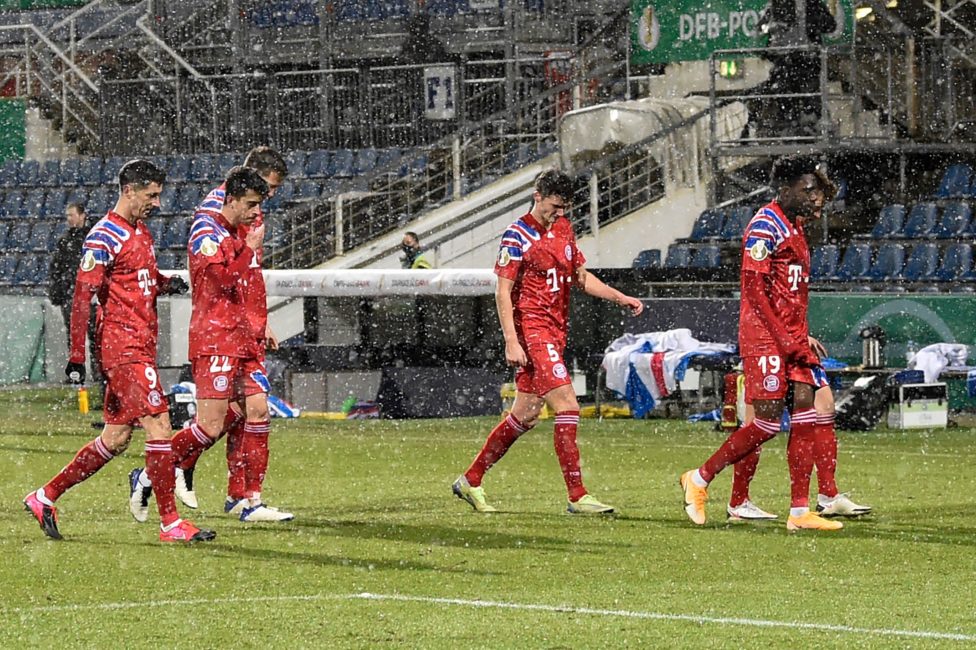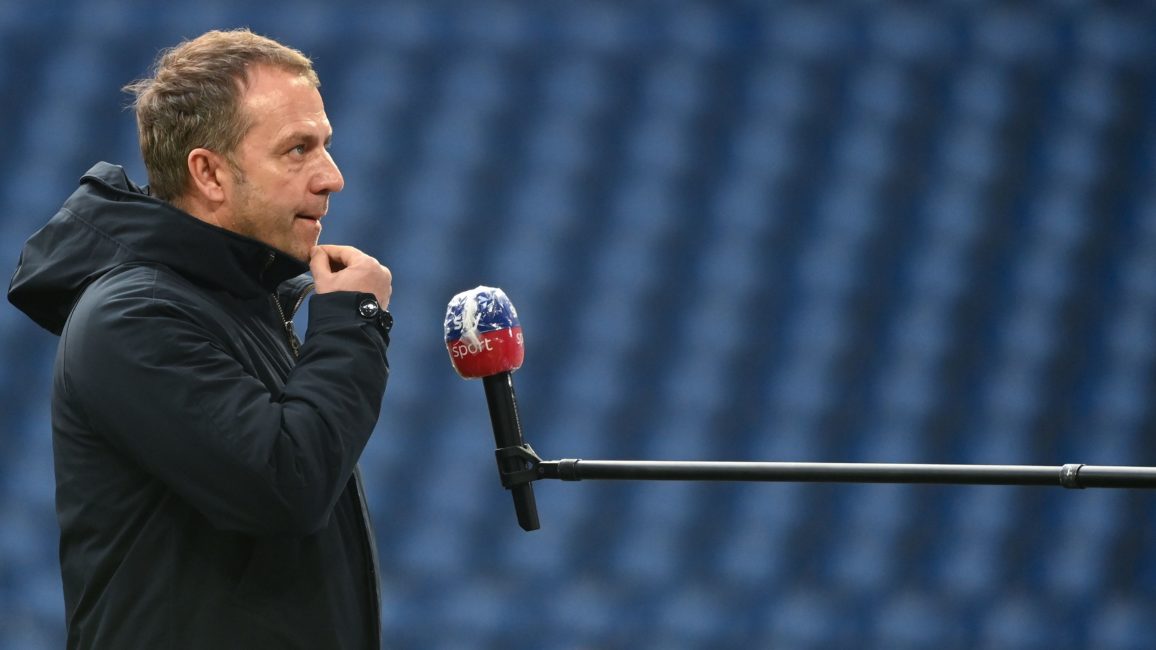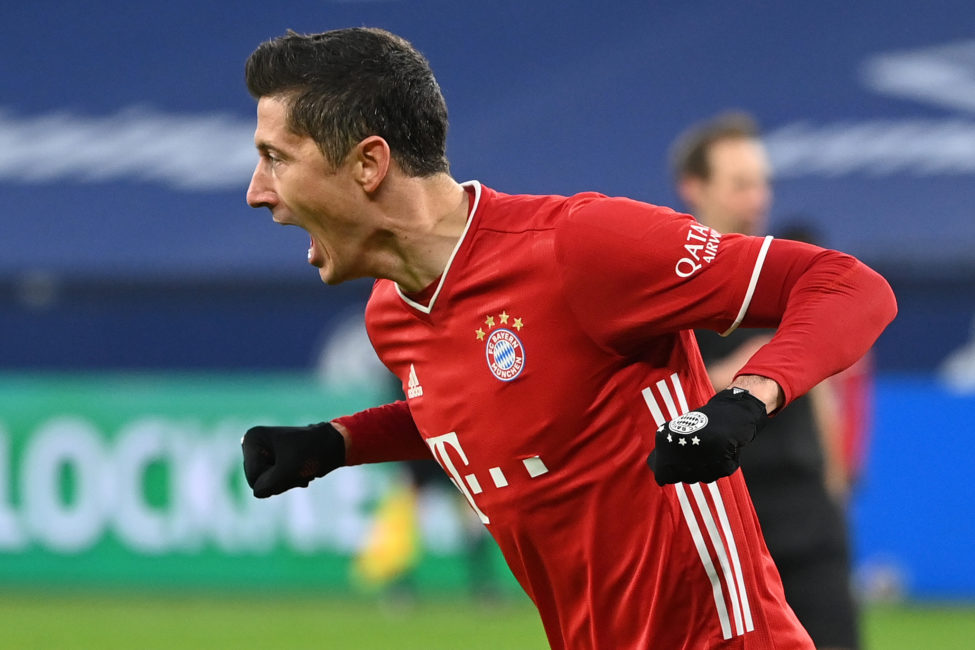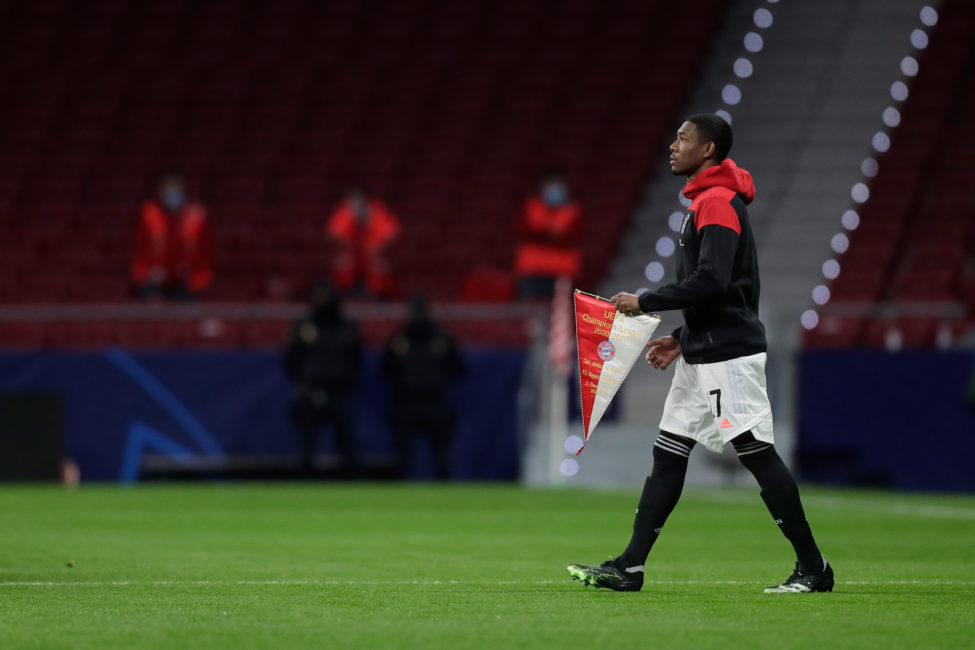Miasanrot Mailbag: January 2021
This time around features our well known writers Dennis, Alex, Georg and Tobi as well as our guest Mark, who is the head of BayernForum.com. Feel free to check out his website.
Question 1: Pokal-exit anyone?
For the first time since 2000 FC Bayern was defeated in the second round of the DFB-Pokal. How do you feel about the German cup in general and the loss against Kiel on penalties in general?
Dennis: Bayern won the DFB Pokal in five of the last eight seasons and the whole tournament only consists of 6 games. As such it has been the shortest way to add silverware to the trophy cabinet. When Bayern were unable to secure it, it was mostly due to freak games and bad luck. Getting counter-attacked by Kovac’s Eintracht or slipping and sliding during the penalty shoot-out against Dortmund. The loss against Kiel felt different, because it was a continuation of the shortcomings Bayern have demonstrated this season.
Georg: I am ambivalent about the early Pokal exit. On the one hand I feel the same as Dennis when he mentions that the loss was to be expected as a consequence of Bayern’s struggles in recent months. On the other hand football is a game of probabilities. And even if we consider FC Bayern 20-1 favorites against underdog teams, once in a while the 5% chance hits. As hard as it is in the moment, we have to accept the laws of probability.

(Photo by FABIAN BIMMER/POOL/AFP via Getty Images)
Tobi: The cup is a weird beast. You love to win it, hate to lose it, yet ultimately it is by far the least important of the major trophies. If you ever had to “settle” for a double, practically everyone would choose the combination of a league and CL title. That being said, losing against a clearly inferior opponent like Bayern just did (no offense to the BL2 promotion race) is rather embarrassing. It’s one thing to have a bad or unlucky day against a top half Bundesliga team. However, as soon as a Bayern team faces a team from a lower league, anything but a victory is unacceptable. That’s simply the expectation and pressure within the club. Regarding the match itself, it was merely another showing of questionable quality. Consecutive collapses and two months of almost-choking culminated in that defeat. It was a match Bayern should’ve won, Kiel weren’t that good, yet the offense was as impotent and the defense as chaotic as they had been in quite a while.
Mark: 13th March 2019. Seems like a far away date in a world that could not even imagine what the world would go through shortly afterwards. That was the previous time a club had eliminated FC Bayern in any competition. Seven trophies later and it was a matter of time until FC Bayern lost, and what better time than this season? I’ve said it before the season even kicked off that there will be some crazy results, and we’re witnessing that across Europe. The amount of surprises has increased drastically. In Spain, two regional league clubs eliminated both Madrid giants, with one of them taking Barcelona to extra time. In England, Liverpool are struggling to make a top four finish and risk sitting out in next season’s Champions League. In Italy, winners of nine consecutive Serie A titles Juventus are in fourth place.
It is hard to find excuses for Bayern’s elimination against Kiel, but one thing stood out: for over 100 out of the 120 minutes played, FC Bayern showed no urgency in their play. For the most part, they walked about on the pitch conserving the little energy they had left in their tanks, perhaps assuming that winning was only a matter of time. A win that never came about, of course, and after almost two years FC Bayern finally bowed out of a competition.
Question 2: Where is our dominance?
Why do Bayern struggle to perform on a top level for 90 minutes: Is it purely physical or also the failure of Flick to adapt mid-game and substitute accordingly?
Dennis: It’s a classical case of “all of the above” and most aspects aren’t new or only surfaced during this season. Last season Flick’s Bayern had the benefit of surprising their opponents with the reset focus on their offensive power and their counter-pressing approach to secure the defence. That approach was energized by the additional Corona breaks. The team was able to recharge the batteries and fine-tune the general approach. Nevertheless Bayern didn’t have a modus operandi in which they were able to slow down and control the game. They simply were able to run all over their opponents in almost any game.
The current season offers hardly any breaks, not even the regular ones in the summer and the winter. Thus the opportunity to recharge the batteries and to have time to fine-tune the approach or to properly integrate the new signings has vanished. Flick is forced to stick to his guns and proven methods. The demand to adapt to the current settings is justified, but the coaching team simply does not have the time to implement fundamental changes. When Bayern’s situation is compared to the other heavy-weights in the top leagues, one has to admit that Flick was able to make the most of the situation. Even though it has been tough to see Bayern struggle in more matches than one has been accustomed to.

(Photo by INA FASSBENDER/POOL/AFP via Getty Images)
Alex: In contrast to Dennis I believe that Bayern’s problems in performing consistently this season are due mainly to mental exhaustion rather than physical tiredness or lack of time to learn and practice tactical elements in training. Physically, most Bayern players are accustomed to playing three times a week for weeks on end, and the human body is not biologically incapable of sustaining three bouts of intense 90 minutes of physical exercise every three days without degrading.
Tactically, Flick, a man of convictions, sticks to a system that has served him well almost from the moment he took charge in November 2019 all the way to the treble last August. He probably believes – and is probably right in doing so – that his approach to playing football with a very high line, extreme intensity, and a highly vertical attacking game based on aggressive pressing, is the dominant system in world football right now. His team has shredded any and all European and domestic competition playing that system last year, and his first eleven has for the most part remained intact in the new season. Why should this highly effective approach stop working within a matter of weeks just because the start of a new season? It makes perfect sense to me that Flick will probably ask himself this very question and believe that if only his players could regain that tiny bit of focus they seem to have lost in recent months, if only they could recover the levels of concentration they still possessed last summer, his team would be back to being the all-conquering machine of just a few months ago. (This, by the way, also explains to me why the new arrivals have ostensibly been given so little trust by Flick. He has seen first hand what his original first eleven was capable of and could do again, and he has not had the time to bed in the new players to do the same.)
But why are the players not able to make such a seemingly small step? The answer is mental exhaustion. I am convinced that the slump Bayern are going through right now is due to the immense mental stress of the players. They have to travel every few days, sometimes even abroad, to compete in the Champions League, all the while maintaining a strict regime of making as few contacts as possible because of COVID-19. They have to mentally adjust to a new opponent every few days; they have to constantly motivate themselves anew before every match to deliver the ‘Bayern-like’ performances that are expected of them; they have not had any chance to switch off and recover before the beginning of the new season after the tournament in Lisbon last August. Instead, they are caught in a constant maelstrom of impressions, always asked to be laser-focused for every game, and never really allowed to be off duty.
So to answer the question, I think the reason for Bayern’s current slump is neither physical tiredness nor Flick’s inability to make in-game adjustments, it is the mental depletion of his ‘old’ players combined with a lack of time to integrate the new ones into his system.
Georg: Although Dennis and Alex disagree, I find logic in both of their reasoning. And I’ll add another possible explanation. When the five substitutions per game were introduced to the pandemic soccer world, Ted Knutson of Statsbomb suggested that small clubs might benefit more from the rule change than favourites. His rationale is that normally the dominant teams benefit towards the end of a game, because by then the underdogs are exhausted from chasing the ball 60-70 minutes. With more subs, underdogs can maintain disturbing Bayern’s game longer, while Bayern themselves cannot benefit to the same extent from substitutions since five new players would disrupt their match flow.
Question 3: Is Robert going for 40?
Lewandowski is scoring at an almost unprecedented rate and is on track to beat Gerd Müllers historic mark of 40 goals. Will he ultimately be able to break the record?
Dennis: Yes, if he stays healthy. I’m already looking forward to the debates about who was the best Bayern striker ever.
Alex: Let’s make this quick: I agree with Dennis.
Georg: Let me rephrase the question: What could prevent Robert from scoring 40? Flick finding his inner Simeone and putting more effort on defensive stability? Not going to happen. Injuries have already been mentioned. Not hoping for any. Or will Lewandowski lose his finishing skills? One has to admit that he so far has outperformed the expected goals. But a little regression to the mean won’t be enough to stop him, either. So, yes, he will knock the bombers record down.

(Photo by INA FASSBENDER/AFP via Getty Images)
Tobi: No. Even if he doesn’t miss another minute of Bundesliga football this season – already a bit unlikely considering the schedule – he will have to sustain an average of more than a goal per match to stand a chance. Then you also need to take into account that he has converted five penalties and scored seven goals in just two freak matches (Hertha and Frankfurt). Lewandowski’s all-time season high stands at six penalties (2017-18).
While the penalty count appears likely to be broken, it would be quite the outlier to have him take another five penalties in the second half of the campaign. If you assume he gets to take another three penalties and the freak matches against Hertha and Frankfurt aren’t repeated – out of fairness we expect him to score once each – that’s already seven fewer goals than in the first half, bringing him to a total of 37 goals. And even this assumes he scores at least once in practically every single match. Gerd Müller’s second-half run in 1972 included: three braces, three hat tricks and one five-goal performance. While Lewandowski already has the latter part covered (22 to 17 goals after 17 matches), it’s a tall order regardless.
All that being said, it’s been a truly remarkable performance so far. And who knows, if Bayern regain their old strength and manage to decide the league early, they might spend the last few matches desperately trying to assist him.
Question 4: Are you gonna miss Alaba?
It all looks like David Alaba is set to leave the club at the end of the year. How much will the team miss its defensive leader and how should Bayern go about replacing him?
Mark: Anyone who has been following me on BayernForum.com would know that I have been heavily criticizing Alaba for quite a while now. Alaba is very beatable in the air and often allows crosses to pass right over his head, crosses that some tall defender would be able to clear. In addition to that, his error making has begun to increase, especially in important matches. If it wasn’t scoring an own goal against Barcelona or providing a ball on a silver plate to Mbappé in the final last season, it was the poor showings he’s shown this season.
Simply put: Alaba’s salary demands are in no way commensurate with his performances. All things considered, extending Alaba at his demands for four seasons would turn out to be an even more expensive operation than signing Upamecano and handing him a four season contract. Extending Alaba for four seasons would mean some 125m euros including sign on fees and agent fees. Meanwhile, Upamecano would cost 42m clause and we can easily offer him even 15m/yr salary (he currently earns 2.5m/yr) and still turn out cheaper than extending Alaba. And if both of them would not turn out to be Bayern quality by the end of their first three seasons, I’m pretty sure that 25 year old Upamecano would have a higher market value than a 32 year old Alaba.
So thank you for your good times Alaba, but auf Wiedersehen!

(Photo by Gonzalo Arroyo Moreno/Getty Images)
Dennis: Bayern will lose two 29 year old treble winners (multiple in Alaba’s case) in back to back seasons for a combined transfer fee of 22 million Euros. It would be very surprising, if these players were not going to be missed. The loss of Thiago can already be felt this season, with his skill-set being heavily missed as one means to be able to control games. Bayern was unable to control close matches with the limited number of players that Flick trusts to perform in central midfield.
The combination of Alaba’s skill-set and the squad depth on the centre back position will probably (hopefully) not cause as big a ripple effect as Thiago’s departure. Nevertheless Alaba’s standing as one of the home-grown players and his track record with two treble wins made him a fan favorite. Something that he jeopardized with his mixed signals during the contract negotiations that ultimately lead to his upcoming departure this summer.
For me personally, Alaba will be an integral part of my Bayern fandom of the past decade and I wish him nothing but happiness and success for his upcoming adventures.
Tobi: In my opinion, this is a different challenge compared to Thiago. There, you lost someone with a rather unique skill set, who always had it in him to dominate a match. With David Alaba, you lose a good but replaceable player. The emotional impact of seeing such a long-term regular leave amplifies worries to unwarranted highs.
At left-back, Alaba had been quite removed from a world-class level for a while. Keep in mind that he could’ve lost that job to Juan Bernat. The main reason that didn’t happen was arguably the Spaniard’s form crisis at the worst possible time. It was hardly a challenge, and Alaba knocked it out of the park. In a central position, he looked rejuvenated for a bit – an ability he already hinted at under Guardiola. Undoubtedly, Alaba was a key piece for the 2020 CL success.
But once again it has become obvious that this wasn’t a full turnaround, it was just a temporary high. The David Alaba of the ongoing season is the one we’ve seen in most of recent years: Good enough to not be a headache but hardly the game changer you’d want him to be. Personally, I would not hesitate to allow Lucas Hernandez to grow into the role of the main LCB. So thank you for the music, David, but we don’t need another aging top earner in decline.












[…] miasanrot.com| It’s the new year and if you ask just about anyone, it can only be uphill from here. In our […] | Miasanrot.com | Read More […]